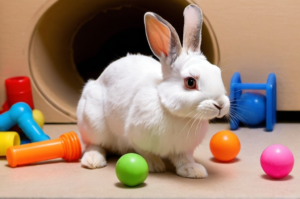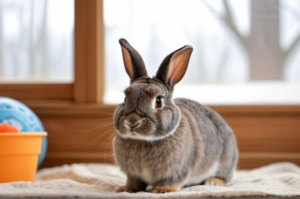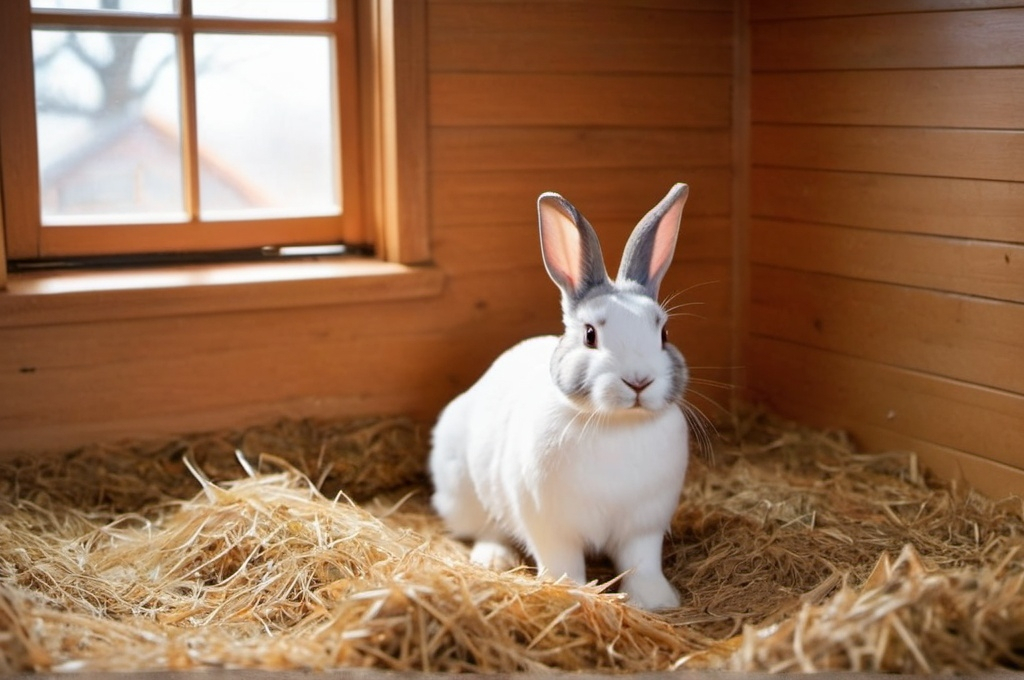Rabbits are great pets because they are friendly, fun, and full of character. If you have a pet rabbit or want to get one, important to know how long do rabbits live at home and how to keep them healthy. This guide will explain how long pet rabbits usually live, what affects their lifespan, and how you can take care of them.
How Long Do Rabbits Live at Home? Average Lifespan of Pet Rabbits
Pet rabbits generally live between 8 to 12 years. This is much longer than wild rabbits, who often live only 1 to 2 years due to predators, diseases, and weather. Domestic rabbits are safer and get regular care, so they live longer.
Different rabbit breeds have different lifespans. For example, smaller breeds like the Netherland Dwarf often live longer than larger breeds like the Flemish Giant. Good genes also help some rabbits live longer. Learning about your rabbit’s breed can help you care for them better.
Case Study: Binky the Rabbit
Binky was a Netherland Dwarf rabbit who lived with his owner, Sarah, for 14 years. Sarah took great care of Binky by giving him a good diet, regular vet visits, and a safe home. Binky had a lot of indoor space to play and lots of toys to keep him busy. Sarah’s care helped Binky live a long and healthy life, longer than the average pet rabbit.

Factors Affecting Rabbit Lifespan
Diet and Nutrition: It’s important to feed your rabbit a balanced diet. They need lots of high-quality hay, which helps with digestion and keeps their teeth healthy. Fresh vegetables are good for vitamins, and a small amount of pellets adds extra nutrients. Don’t give them too many sugary treats and always provide fresh water.
Living Environment: Your rabbit’s home should be clean, safe, and spacious. Indoor rabbits usually live longer because they are protected from predators and bad weather. Make sure their living area is free from dangers and has enough space for them to move around.
Healthcare and Regular Vet Visits: Regular vet visits are important. Check-ups can find health problems early. Common issues include dental problems, digestive issues, and respiratory infections. Vaccinations and parasite control also help keep them healthy.
Exercise and Mental Stimulation: Rabbits need exercise and mental stimulation. Provide toys and activities to keep them busy. Spending time with them and letting them interact with other pets can also make them happy.
Common Rabbit Illnesses
Rabbits can get sick, just like other pets. Here are some common illnesses:
Dental Problems: Rabbits’ teeth keep growing, which can cause problems if they don’t wear down properly. Look out for drooling, not eating, and weight loss. Regular dental check-ups and a diet with lots of hay can help prevent these issues.
Gastrointestinal Issues: GI stasis is a serious condition where a rabbit’s digestive system slows down or stops. It can be caused by stress, dehydration, or a poor diet. Symptoms include not eating, being very tired, and not pooping. If you think your rabbit has GI stasis, see the vet right away.
Respiratory Infections: Infections like snuffles can cause sneezing, a runny nose, and trouble breathing. Treatment usually involves antibiotics. Keeping their home clean and stress-free can help prevent these infections.
Skin Conditions: Parasites like mites and fleas can make your rabbit itchy and cause fur loss. Regular grooming and a clean living area can help prevent these problems. If your rabbit has skin issues, see the vet for treatment.
Reproductive Issues: Female rabbits can get uterine cancer, but spaying can prevent this. Regular health checks and spaying or neutering can prevent many reproductive problems.

Tips for Caring for Your Rabbit
Creating a Safe and Comfortable Environment: Make sure your rabbit has a secure and spacious living area. Whether it’s a cage, playpen, or free-roaming space, it should be free from dangers and give them room to explore.
Diet and Nutrition: Feed your rabbit a balanced diet with unlimited fresh hay, a variety of vegetables, and a small amount of high-quality pellets. Always provide fresh water.
Grooming and Hygiene: Regular grooming helps keep your rabbit’s fur clean and reduces the risk of flystrike, a serious condition where flies lay eggs on their skin. Brush your rabbit often, especially when they are shedding, and keep their home clean.
Health Monitoring: Watch for signs of illness like changes in appetite, behavior, or poop. Early detection of health problems can lead to better treatment. Schedule regular vet visits to keep your rabbit healthy.
Socialization and Bonding: Spend time with your rabbit to build a strong bond. Rabbits are social animals and enjoy interaction. Gentle handling, playtime, and talking to your rabbit can make them happy.
Signs of Aging in Rabbits
As rabbits get older, they show signs of aging.
Reduced Activity: Older rabbits may move less and prefer resting. Make sure they have a comfortable resting area and encourage gentle exercise.
Changes in Fur and Skin: Older rabbits might have thinner or graying fur, and their skin can become more delicate. Handle them gently during grooming.
Dental Issues: Older rabbits may have more dental problems. Watch for signs like difficulty eating, drooling, or weight loss. Regular dental check-ups are important.
To care for older rabbits, provide softer bedding, easy access to food and water, and adjust their living space to prevent injury. Regular vet visits are even more important to manage age-related health issues.
Enhancing Rabbit Lifespan
To help your rabbit live a long life, focus on a balanced diet, a safe and clean environment, regular vet care, and mental and physical stimulation. A high-quality life not only extends their years but also makes them happier.
Diet: Offer a variety of hay, fresh vegetables, and limited pellets. Avoid sugary treats and always provide fresh water.
Environment: Keep their living area clean, spacious, and free from dangers. Indoor environments are usually safer, but if your rabbit is outdoors, make sure they are protected from predators and bad weather.
Healthcare: Schedule regular vet visits, keep up with vaccinations, and address health problems quickly. Dental care is especially important.
Stimulation: Provide toys, social interaction, and chances for exercise. Enrichment activities keep your rabbit mentally and physically healthy.
Conclusion
Rabbits can live long, happy lives with the right care. By understanding their needs and what affects their lifespan, you can help your rabbit stay healthy and happy. Committing to their well-being is the key to giving them the best care.
Additional Resources
Reputable Rabbit Care Guides and Websites:
- House Rabbit Society: A great resource for rabbit care, including diet, health, and behavior.
- Rabbit Welfare Association & Fund: Offers detailed information on rabbit health and care.
- Bunny Lady: Provides practical tips and advice from an experienced rabbit owner.
Contact Information for Local Exotic Pet Veterinarians:
- To find a vet who specializes in exotic pets, visit Find a Vet or the Association of Exotic Mammal Veterinarians.
Recommended Books on Rabbit Care:
- “Rabbits for Dummies” by Connie Isbell and Audrey Pavia: A helpful guide on all aspects of rabbit care.
- “The House Rabbit Handbook: How to Live with an Urban Rabbit” by Marinell Harriman offers advice on living with a rabbit in your home.
- “Why Does My Rabbit…?” by Anne McBride: Answers common questions about rabbit behavior and care.
Educational Videos and Online Courses:
- YouTube: 101Rabbits: Features videos on rabbit care, DIY projects, and health tips.
- Udemy: Rabbit Care Course: An online course on rabbit care, from diet to grooming.
Support and Community Groups:
- Facebook Groups: Rabbit Care and Advice: Join groups to share tips and experiences with other rabbit owners.
- Reddit: r/Rabbits: A forum for rabbit lovers to discuss care, share photos, and get advice.
Local Rabbit Rescue Organizations:
- Contact your local animal shelter or search for rabbit-specific rescues, such as SaveABunny or Bunny Buddies, for adoption and care support.
These resources will help you care for your rabbit and ensure they live long, healthy, and happy lives.

